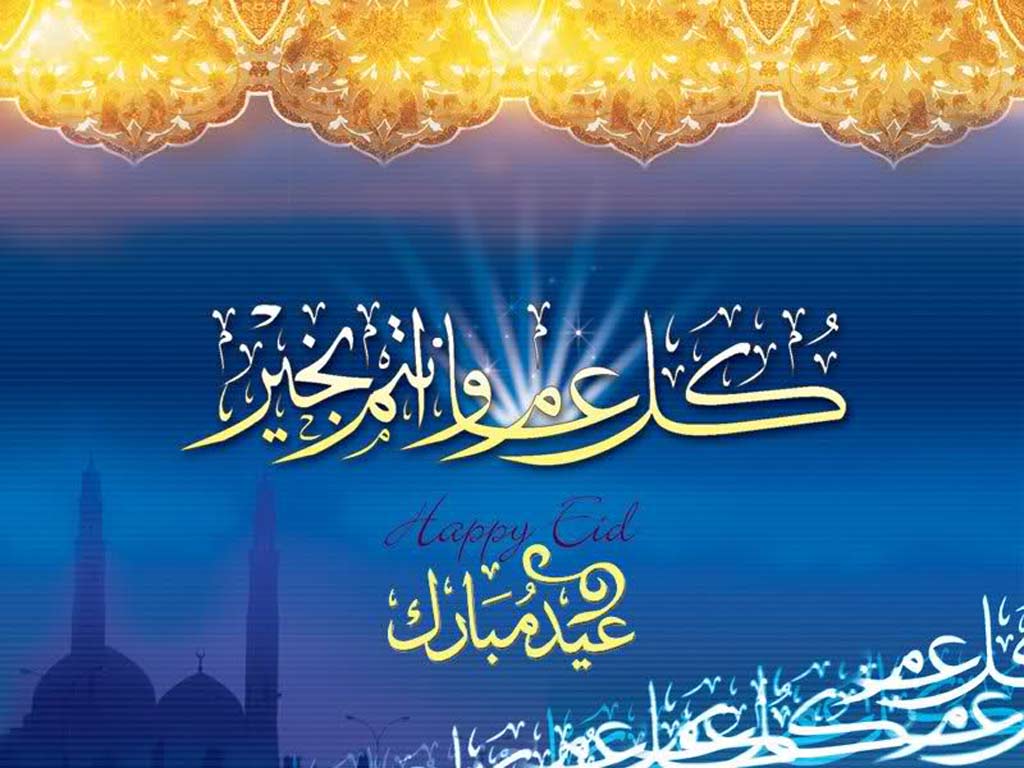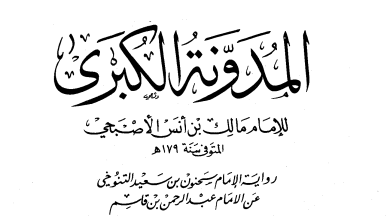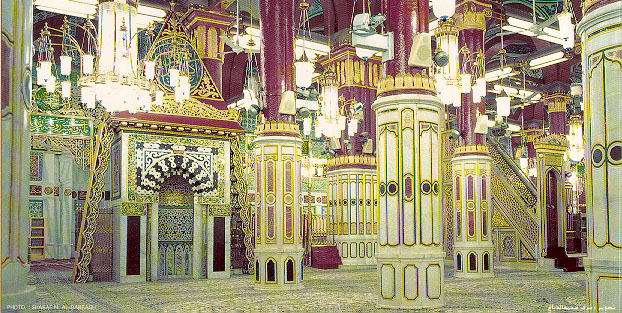Aḥādīth On [giving] Zakāt on Jewellery – by al-Ḥāfiẓ al-Zayla’ī [d. 762 AH]
Translator’s Preface:
The following short piece translated from Ḥāfiẓ Zayla’ī’s book, Naṣb ‘l-Rāyah fī Takhrīj Aḥādīth ‘l-Hidāyah (see footnote 1), covers the issue of giving Zakāt on Jewellery, more importantly on gold and silver. It serves as a response to a group of people who have weakened this opinion and paid no attention to scholarly discourses upon it. It will also, Insha’Allah, serve as a reminder to instill the importance of giving Zakāt on gold and silver to the Muslims.
Translation:
Regarding this issue [of giving Zakāt on Jewellery], there are general narrations and specific narrations.
Of the general narrations; the narration of Abū Sa’īd al-Khudrī (may Allāh be pleased with him), “…Sadaqah (Zakāt) is payable on less than five Awāq (of silver).” Al-Bukhārī[2] and Muslim narrated it in their Ṣaḥīḥayn (two authenticated collections), whereas Muslim[3] narrated it from Jābir with similar wordings. The narration of ’Alī: “…you must pay a Dirham [of Zakāt] for every forty (Dirhams).” Then the authors of the four Sunan have narrated it.[4] Ibn Qutaybah said: “Al-Raqqah is silver, whether they are Dirhams or other than it,” Ibn ‘l-Jawzī has narrated this in his ‘Taḥqīq‘.[5] In the letter of ‘Amr b. Ḥazm: “…and in every five Ūqiyyahs of silver you give five Dirhams, and in every forty Dīnār you pay one Dīnār,” al-Nasā’ī, Ibn Ḥibbān and al-Ḥākim narrated it,[6] and the other aforementioned narrations all of which have passed.
As for the specific narrations, then from them is the narration related by Abū Dāwūd and al-Nasā’ī[7] from Khālid b. ‘l-Ḥārith from Ḥusayn al-Mu’allim, from ’Amr b. Shu’ayb from his father from his grandfather: “A woman came to the Prophet ﷺ, who was accompanied by her daughter who wore two heavy gold bangles in her hands. He said to her: ‘Do you pay Zakāt on them?’ She said: ‘No.’ He then said: ‘Are you pleased that Allāh may put two bangles of fire on your hands on the day of judgement?’ Thereupon she took them off and placed them before the Prophet ﷺ saying: ‘They are for Allāh and His Rasūl’.’
Ibn ‘l-Qaṭṭān said in his book: “Its chain is authentic,” al-Mundhirī said in his abridgment: “The chain has no problems in it, indeed Abū Dāwūd narrated it from Abū Kāmil al-Jaḥdarī and Ḥumayd b. Mas’adah, and they are both from the authentic narrators (Thiqāt), both of whom Imām Muslim has utilised. [Then there is] Khālid b. ‘l-Ḥārith who is a Imām and Jurist, al-Bukhārī and Muslim both have utilised him. Similarly, Ḥusayn b. Dhakwān al-Mu’allim was utilised in the ‘Ṣaḥīḥ’. Ibn ‘l-Madīnī, Ibn Ma’īn and Abū Ḥātim did his (Ḥusayn) Tawthīq (authentication). [As for] ’Amr b. Shu’ayb then he is known. So, this chain stands as evidence God-willing.” [8]
Al-Nasā’ī also narrated from al-Mu’tamir b. Sulaymān from Ḥusayn al-Mu’allim from ’Amr that he said: “A woman came…” and he (Mu’tamir) mentioned it in Mursal form. Al-Nasā’ī said: ‘Khālid is more established according to us than Mu’tamir. The narration of Mu’tamir is preferred according to the correct opinion.”[9]
Another route is narrated by al-Tirmidhī from by Ibn Lahī’ah from ’Amr b. Shu’ayb from his father from his grandfather, he said: “Two women came to the Messenger of Allāh ﷺ and in their hands were bracelets made of gold, so he ﷺ said to them: ‘Has Zakāt been given for that?’ They replied: ‘No.’ So he ﷺ said: ‘Do you like that Allāh places two bracelets of fire on your hands?’ They said: ‘No.’ So he ﷺ said: ‘Then give it’s Zakāt’”.
Al-Tirmidhī said: “…and al-Muthannā b. ‘l-Ṣabbāḥ narrated it from ’Amr b. Shu’ayb similarly, Ibn Lahī’ah and al-Muthannā b. ‘l-Ṣabbāḥ have been weakened in Hadīth. Hence there is nothing authentic in regarding this chapter from the Prophet ﷺ.”[10] Al-Mundhirī mentioned: “Maybe al-Tirmidhī intended to mean the two routes which he mentioned (are weak), except the route of Abū Dawūd has no problems in it (the chain).”[11]
Ibn ‘l-Qaṭṭān said after his authenticating of the narration of Abū Dāwūd: “Indeed al-Tirmidhī only weakened this narration because according to him there were two weak narrators; Ibn Lahī’ah and al-Muthannā b. ‘l-Ṣabbāḥ.”[12]
Those that narrated it with the same chain as al-Tirmidhī are Aḥmad, Ibn Abī Shaybah and Isḥāq b. Rahwayh in their Musnads. And their wording is: “He ﷺ said to them; ‘So give Zakāt on that which is on your hands,’ and this wording removes the possibility of the interpretation of those who have said that the Zakāt mentioned in the narration is only legislated for what is beyond the necessity, and Allāh knows best.
Another route narrated by Aḥmad (May Allāh be pleased with him) in his Musnad,[13] is from al-Muthannā b. ‘l-Ṣabbāḥ from ’Amr b. Shu’ayb etc., which is the route indicated to by al-Tirmidhī [as mentioned earlier], another route also narrated by Aḥmad and by al-Dāraqūṭnī in his Sunan from al-Ḥajjāj b. Arṭāh etc although al-Ḥajjāj is not utilised as proof.
Another ḥadīth narrated by Abū Dāwūd in his Sunan[14] [with his chain]: Muḥammad b. Idrīs al-Rāzī related to us, who said: ’Amr b. ‘l-Rabī’ b. Ṭāriq related to us, who said: Yaḥyā b. Ayyūb related to us, from ’Ubaydullāh b. Abī Ja’far that Muḥammad b. ’Amr b. ’Aṭā’ informed him that ’Abdullāh b. Shaddād b. ‘l-Hād who said: “We entered upon ’Ā’ishah, [the wife of the Prophet ﷺ]. She said; ‘The Messenger of Allāh ﷺ entered upon me and saw two silver rings in my hand. He asked’: ‘What is this ’Ā’ishah?’ ‘I said: I had them made to adorn myself for you, Messenger of Allāh ﷺ.’ ‘He asked: Do you pay zakat on them?’ ‘I said: No. He said’: ‘This is sufficient to take you to the Hell fire.’”
And al-Ḥākim narrated it with his chain in al-Mustadrak through Muḥammad b. ’Amr b. ’Aṭā’, and said: “Authentic upon the conditions of the two Shaykhs, and they did not narrate it.”[15] Al-Daraqūṭnī also narrated in his Sunan through Muḥammad b. ’Aṭā’ through the lineage of his grandfather and not his father. Thereafter he (al-Daraqūṭnī) said: “Muḥammad b. ’Aṭā’ is unknown (majhūl).”
Imām al-Bayhaqī said in al-Ma’rifah: “…and he is Muḥammad b. ’Amr b. ’Aṭā’, because his lineage went to his grandfather as al-Daraqūṭnī thought that he is unknown, whereas this not the case.”[16]
The above can be downloaded as a pdf HERE
[1] From the author’s book; Naṣb ‘l-Rāyah fī Takhrīj Aḥādīth ‘l-Hidāyah [2/439-441, Dār ‘l-Ḥadīth; 1995 ed.]. The translator also took the title of translation from this author’s text.
[2] Ṣaḥīḥ ‘l-Bukhārī [#1413].
[3] Ṣaḥīḥ Muslim [#1635].
[4] Jāmi’ ‘l-Tirmidhī [#563], Sunan Abū Dāwūd [#1437], Sunan ‘l-Nasā’ī [#2442], Sunan Ibn Mājah [#1780].
[5] Gharīb ‘l-Ḥadīth, Ibn ‘l-Jawzī [1/411] [6] Ṣaḥīḥ Ibn Ḥibbān [14/501 #6559], Mustadrak ’alā ‘l-Ṣaḥīḥayn, al-Ḥākim [#1377].
[7] Sunan Abū Dāwūd [#1563], Sunan ‘l-Nasā’ī [#2479].
[8] ’Umdat ‘l-Qāri, Badr ‘l-Dīn al-’Aynī [13/456].
[9] Sunan ‘l-Nasā’ī [#2479].
[10] Jāmi’ ‘l-Tirmidhī [#637].
[11] ’Umdat ‘l-Qāri, Badr ‘l-Dīn al-’Aynī [13/456].
[12] Fatḥ ‘l-Qadīr, Ibn ‘l-Humām [2/216].
[13] Musnad Aḥmad [2/178 #6667].
[14] Sunan Abū Dāwūd [#1565].
[15] Mustadrak ’alā ‘l-Ṣaḥīḥayn, al-Ḥākim [3/468 #1388]. Ḥāfiẓ Ibn Ḥajar al-’Asqalānī said in al-Talkhīṣ ‘l-Ḥabīr [2/494 #859]: ‘It’s chain is upon the conditions of the Ṣaḥīḥ’.
[16] Muḥammad b. ’Amr b. ’Aṭā’ is known, and is an authentic narrator, please refer to: Siyar A’lām ‘l-Nubalā’, al-Dhahabī [5/225] who said: ‘…one of the trustworthy narrators’, and Taqrīb ‘l-Tadhīb, Ibn Ḥajar [1/499 #6187] who said: ‘trustworthy’, also refer to Tahdhīb ‘l-Tahdhīb [9/384 #8616] for a full discussion on the narrator.






